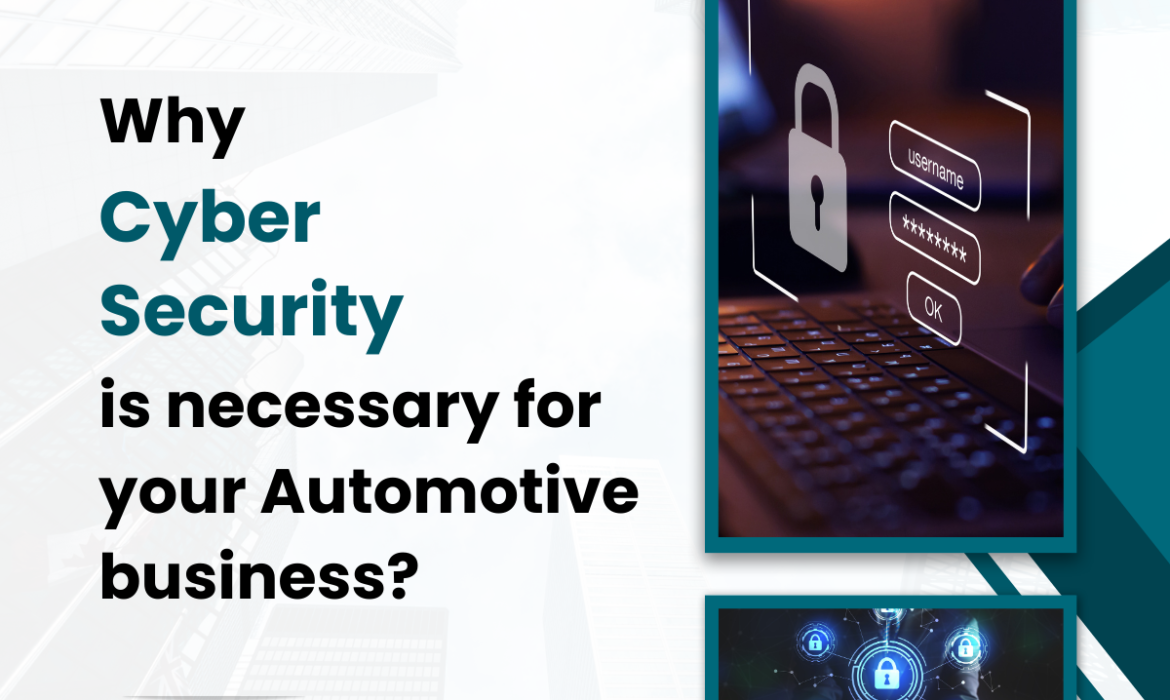
Safeguarding the Wheels of Innovation: The Imperative of Cybersecurity in the Automotive Business by Visualize Cyber Solutions.
- Introduction:
In today’s era of rapid technological advancement, the automotive industry is undergoing a revolutionary transformation. As vehicles become more connected, autonomous, and digitally integrated, the importance of cybersecurity in the automotive business cannot be overstated. In this blog, we’ll explore the critical role of cybersecurity in ensuring the safety, reliability, and continued progress of the automotive sector.
1.Rising Threat Landscape:
The integration of cutting-edge technologies such as IoT (Internet of Things) and cloud connectivity brings immense benefits to the automotive industry. However, it also opens the door to cyber threats. From unauthorized access to vehicle systems to potential hacking of autonomous vehicles, the expanding attack surface demands robust cybersecurity measures.
2 Protecting Driver Safety:
Cybersecurity directly impacts driver safety. As vehicles become more automated, they rely heavily on software and data processing. Any vulnerability in the software could lead to potentially dangerous situations, making it imperative to safeguard against cyber-attacks that could compromise vehicle control systems.
3 Data Privacy and Customer Trust:
Modern vehicles generate and store vast amounts of data, including driver behavior, location information, and even biometric data. Ensuring the privacy and security of this data is crucial for maintaining customer trust. Cybersecurity measures help prevent data breaches that could lead to unauthorized access to sensitive information.
4.Preventing Financial Loss:
A cyber-attack on an automotive business can have severe financial repercussions. From the cost of addressing security breaches to potential legal liabilities and damaged brand reputation, the financial impact can be substantial. Robust cybersecurity measures act as a shield against these potential losses.
5.Supply Chain Resilience:
The automotive industry involves a complex web of suppliers and partners. Cybersecurity vulnerabilities within the supply chain can propagate and affect multiple stakeholders. Strengthening cybersecurity practices within the automotive ecosystem ensures the resilience of the entire network against potential threats.
6.Regulatory Compliance:
With the increasing awareness of cybersecurity risks, regulatory bodies are imposing stricter requirements on the automotive industry. Adhering to cybersecurity standards and regulations is not only a legal obligation but also a responsible approach to ensuring the safety of vehicles and their users.
Conclusion:
In a world where innovation in the automotive sector is reaching unprecedented heights, the need for robust cybersecurity measures cannot be overlooked. As vehicles become more technologically advanced and interconnected, the risk of cyber threats becomes more pronounced. The automotive business must prioritize cybersecurity to safeguard driver safety, protect sensitive data, and maintain the trust of customers.
By embracing cybersecurity as an integral part of their operations, automotive businesses can drive forward with confidence, knowing that their innovations are not only groundbreaking but also well-protected against the ever-evolving landscape of cyber threats.
#SecureAutoInnovation #CyberResilientDriving #AutoSecurity #SaferConnectedCars #VisualizeCyberSolutions #LifeatVCS



